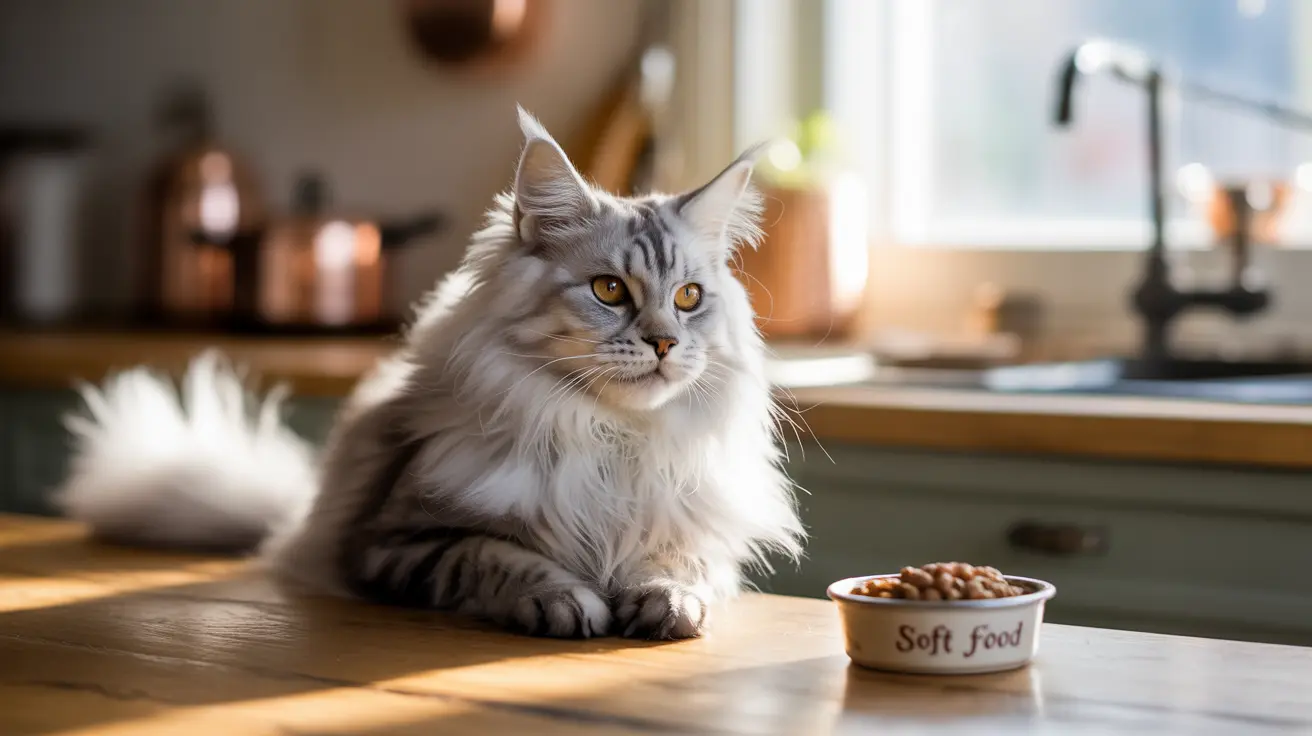When your cat's jaw makes clicking sounds during eating, grooming, or meowing, it can be concerning for any pet owner. This audible symptom often signals potential issues with your cat's temporomandibular joint (TMJ) or dental health that shouldn't be ignored. Understanding the causes and implications of jaw clicking can help you make informed decisions about your cat's health care.
In this comprehensive guide, we'll explore why cats experience jaw clicking, what it might indicate about their health, and when you should seek veterinary attention. We'll also discuss various treatment options and preventive measures to help maintain your cat's oral health.
Common Causes of Cat Jaw Clicking
Several underlying conditions can lead to jaw clicking in cats:
Temporomandibular Joint (TMJ) Disorders
TMJ disorders are a primary cause of jaw clicking in cats. These can result from:
- Trauma or injury to the jaw
- Arthritis in the joint
- Congenital joint abnormalities
- Inflammatory conditions
- Joint infections
Dental Disease
Dental problems frequently contribute to jaw clicking, including:
- Advanced periodontal disease
- Tooth resorption
- Misaligned teeth
- Broken or damaged teeth
- Severe gingivitis
Signs and Symptoms to Watch For
Beyond the clicking sound, watch for these associated symptoms:
- Difficulty eating or dropping food
- Reluctance to chew hard foods
- Excessive drooling
- Pawing at the mouth
- Facial swelling
- Changes in grooming habits
- Decreased appetite
- Head shyness or resistance to touch
Diagnosis and Veterinary Care
Proper diagnosis typically involves:
- Comprehensive oral examination
- Dental X-rays
- Physical manipulation of the jaw
- Assessment of eating habits
- Possible advanced imaging (CT scans)
- Blood work to rule out systemic conditions
Treatment Options
Treatment approaches vary based on the underlying cause:
Medical Interventions
- Anti-inflammatory medications
- Pain management
- Antibiotics for infections
- Muscle relaxants when appropriate
Surgical Solutions
- Dental extractions if needed
- TMJ surgery in severe cases
- Correction of jaw misalignment
- Removal of masses or tumors
Supportive Care
- Soft food diet
- Physical therapy exercises
- Regular dental cleaning
- Modified feeding techniques
Prevention and Long-term Management
Preventive measures can help reduce the risk of jaw problems:
- Regular dental check-ups
- Professional dental cleaning
- Home dental care when possible
- Appropriate toy selection
- Monitoring for early signs of problems
Frequently Asked Questions
What does it mean if my cat's jaw is clicking when it eats or meows?
Jaw clicking in cats typically indicates an issue with the temporomandibular joint (TMJ) or dental problems. It can result from inflammation, injury, arthritis, or dental disease affecting the jaw's normal function.
Could jaw clicking in cats be a sign of dental disease or temporomandibular joint (TMJ) problems?
Yes, jaw clicking can be a direct symptom of both dental disease and TMJ problems. These conditions often require different treatment approaches, which is why proper diagnosis is essential.
When should I take my cat to the vet for persistent jaw clicking sounds?
You should consult a veterinarian if you notice consistent jaw clicking, especially if accompanied by changes in eating habits, drooling, or signs of pain. Early intervention typically leads to better outcomes.
How do veterinarians diagnose the cause of jaw clicking in cats?
Veterinarians use a combination of physical examination, dental X-rays, and sometimes advanced imaging like CT scans. They may also evaluate your cat's eating behavior and perform blood tests to rule out systemic conditions.
What treatments are available for cats with jaw clicking due to joint or dental issues?
Treatment options range from medications and dental procedures to surgery, depending on the underlying cause. The approach may include pain management, antibiotics, dental extractions, or TMJ surgery in severe cases.
Remember, while occasional jaw clicking might not indicate a serious problem, persistent clicking or clicking accompanied by other symptoms warrants veterinary attention. Early intervention can prevent more severe complications and ensure your cat maintains a good quality of life.






